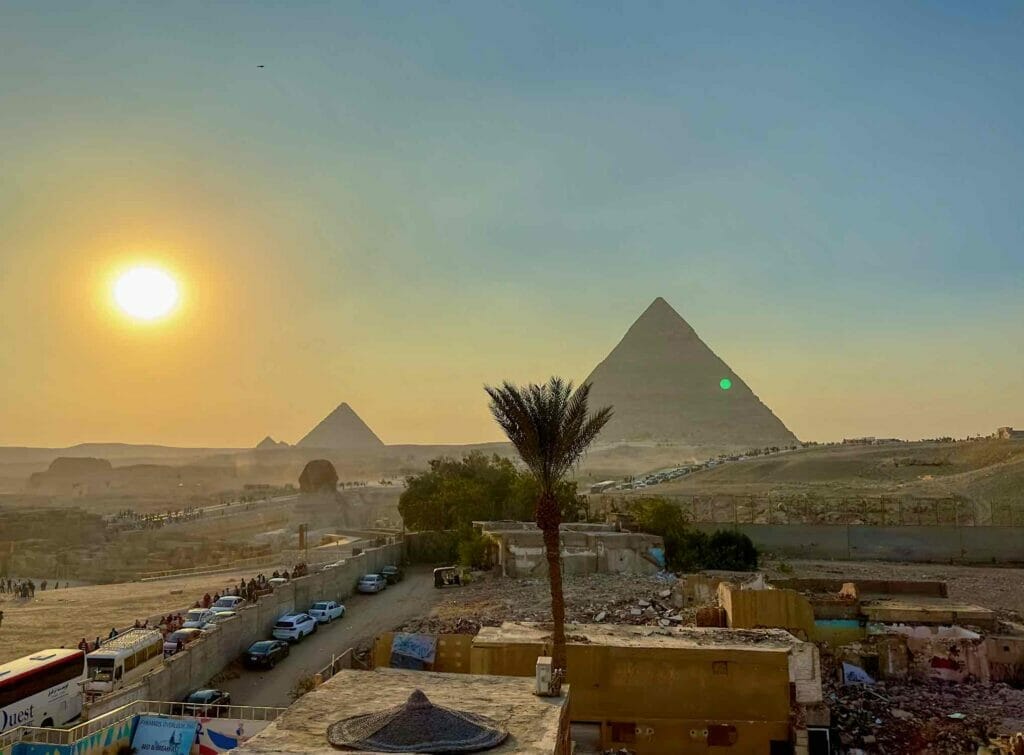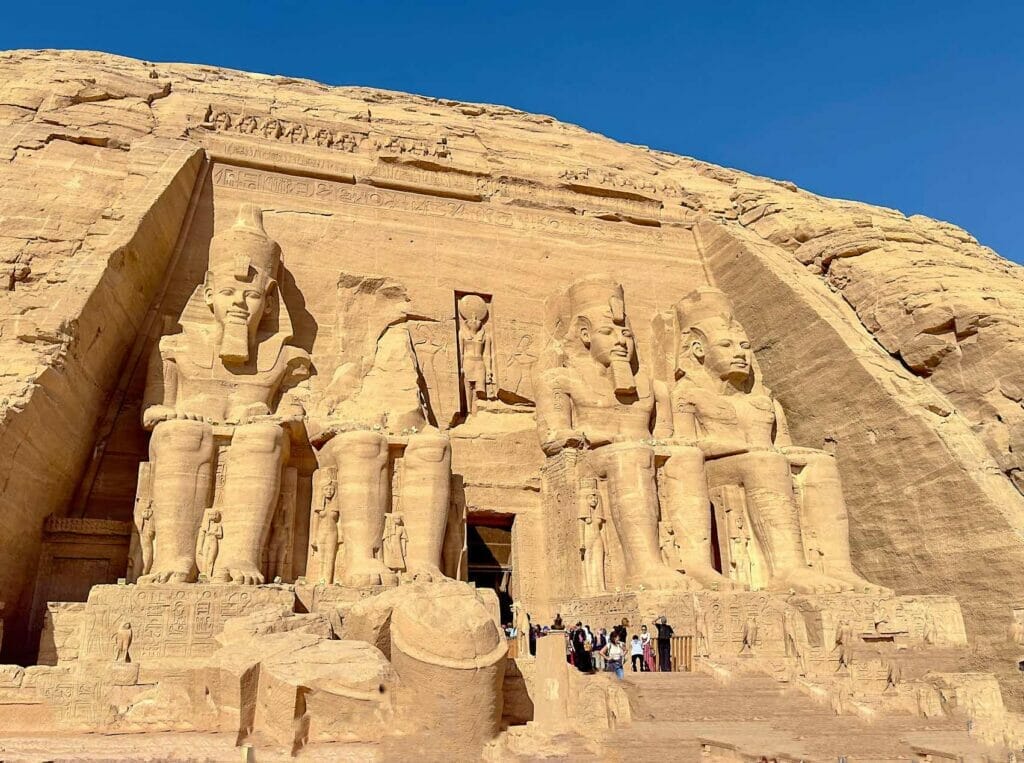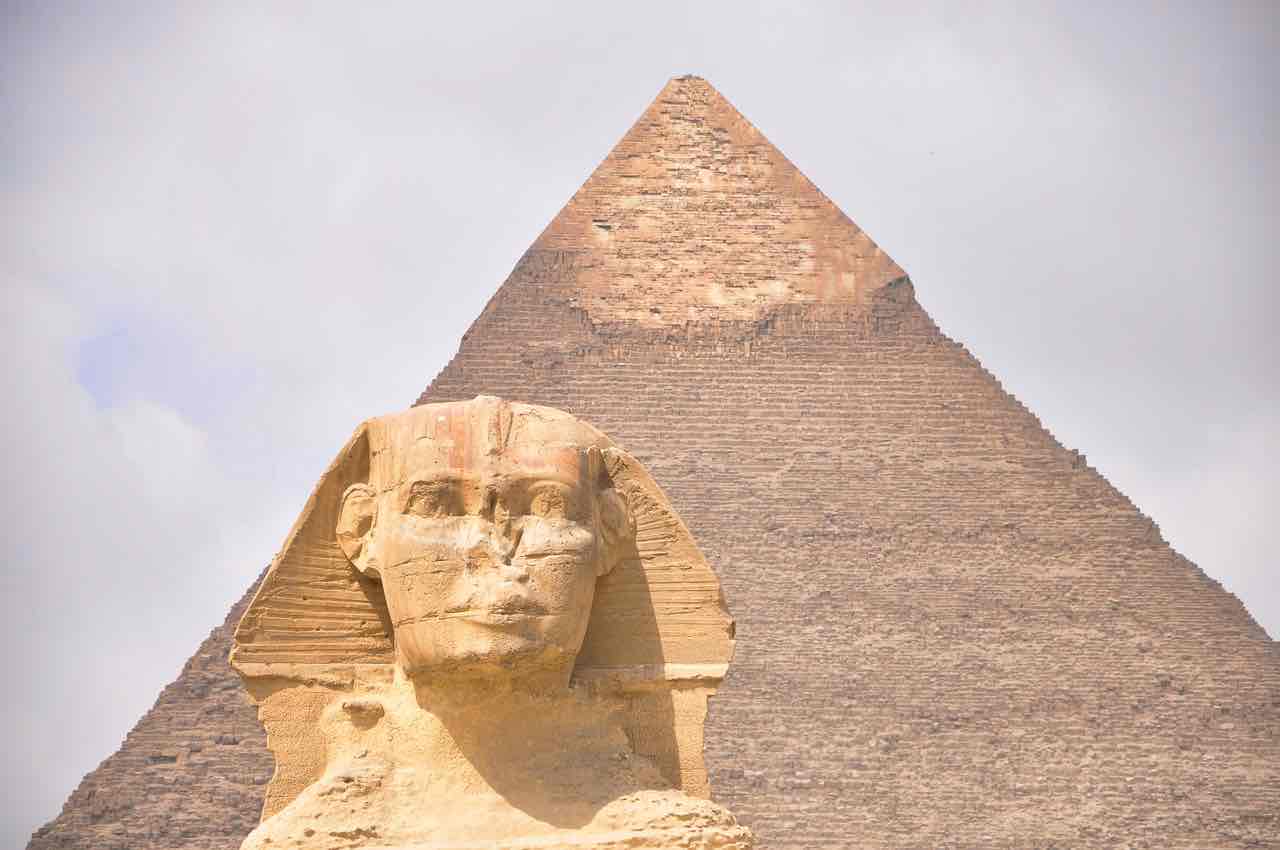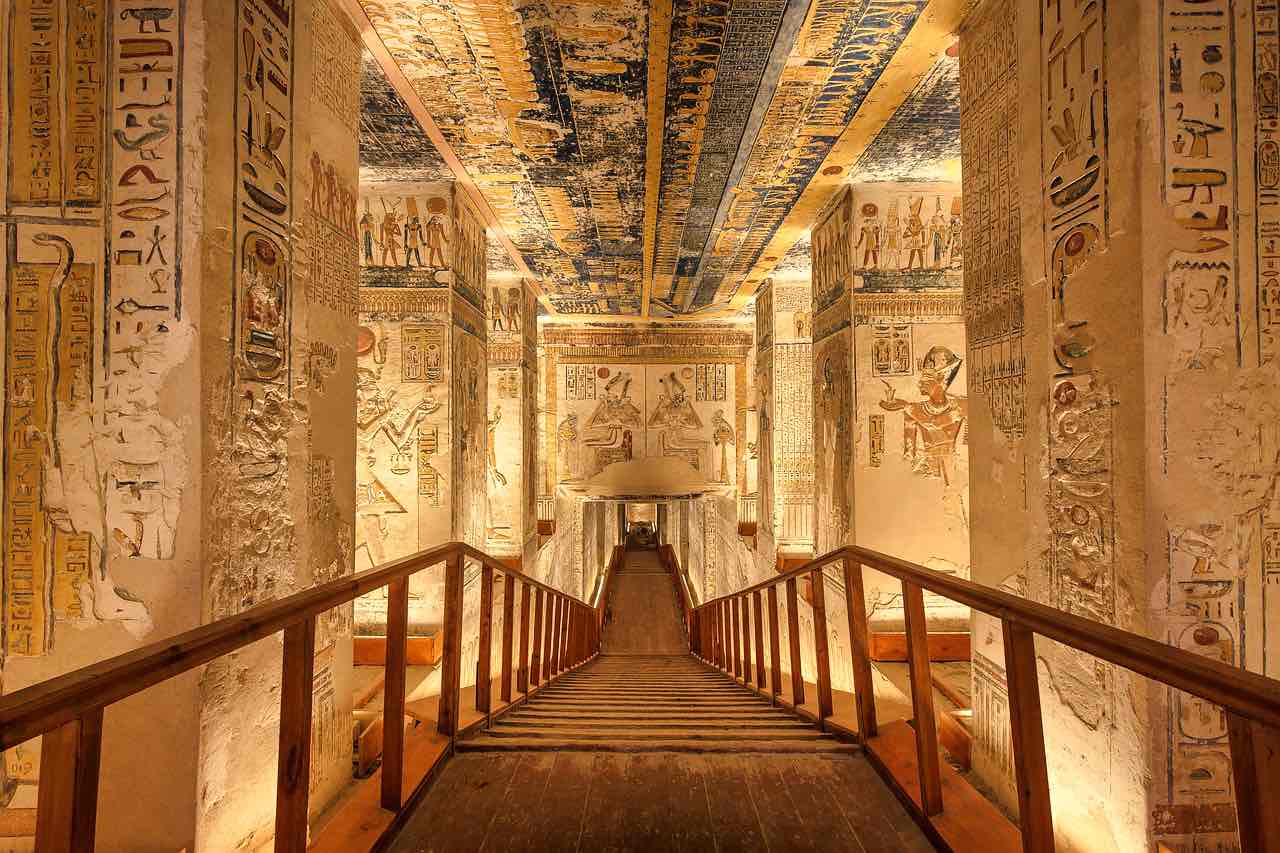Table of Contents
ToggleBrief Overview
Since its establishment in 969 AD by the Fatimid dynasty, Cairo has attracted people from all over the world. Each of the empires that ruled over the city, from the Mamluks to the Ottomans to the French and the British, left their mark on the city’s culture and architecture. Across the mighty Nile, in the Giza, Saqqara, and Dahshur pyramid fields, lie the ruins of a far earlier Egyptian civilization (which are together inscribed as a UNESCO World Heritage Site1). Cairo is a genuinely cosmopolitan modern metropolis with a lively cultural scene and a number of world-class restaurants, despite (or perhaps because of) its history. Find out how to make the most of your time in this fascinating location by reading on.

Best time to visit
Things to see and do
Tour the Egyptian Museum
The museum is an absolute must-see because it houses the most priceless artefacts unearthed from ancient Egyptian sites. The boy king’s funerary mask and sarcophagus, among other treasures, are among the most fascinating artefacts discovered in his tomb.
A guided tour is recommended . Click here for a tour
Visit the Pyramids of Giza
If you’re travelling to Cairo you are obviously going to visit the pyramids.
Take an Uber across the Nile to the Giza plateau, where you can visit the three pyramids of Khufu, Khafre, and Menkaure. Only the first one, the Great Pyramid of Giza, survives as the sole remnant of the ancient world’s original seven wonders. It really is a sight to behold!
For a guided tour from Cairo click here
Grab your souvenirs at Khan el-Khalili Bazaar
Khan el-Khalili, a warren of streets and stalls selling everything from exotic spices and Bedouin embroidery to silver jewellery and Egyptian street food, has been the centre of Cairo’s shopping district since the late 14th century.
Don’t feel intimidated by the hoards of people, they are harmless. Also don’t forget to haggle for the best price. Do not pay more than £0.50 ($1) for a fridge magnet.
Get a Bird’s Eye View from Cairo Tower
In 1961, President Nasser was rewarded for his support of the American political agenda with a donation of money that was used to build Cairo Tower. Nasser, however, put the funds toward the construction of the tower as a show of defiance for the Arab people. It currently serves as the monarch of Gezira Island and, at 614 feet (187 metres), is the highest structure in all of North Africa. Mosaics in the lobby portray famous places from the now-defunct United Arab Republic. The tower’s top features a rotating restaurant with sweeping views of the city and an observation deck for taking it all in.
Admission is 60 Egyptian Pounds per person or $2-3 / £1.50-£2
Visit the Hanging Church
Coptic The Babylon Fortress in Cairo is visible in the background from the Hanging Church. The current structure was constructed in the 7th century, but a church had stood on the site for the previous 400 years. As such, it is likely one of the earliest Christian worship centres in all of Egypt. Once inside, be sure to see the marble pulpit, the remarkable collection of holy icons, and the vaulted timber ceiling (meant to mimic the interior of Noah’s Ark). There are daily hours of operation for the church, which has been linked to visions of the Virgin Mary, from 9 a.m. to 4 p.m.
Take a guided tour of Islamic Cairo
Visit the old mosques, madrasas, and other Islamic landmarks in Islamic Cairo on a guided tour. Islamic Cairo is the city’s historic core. The sights of the city and the opportunity to hear fascinating tales of Islamic Egypt’s past are just two of the benefits of taking a guided tour.
Book our recommend tour here
Try traditional Egyptian street food
Try some authentic Egyptian street food! Egyptian street food is a huge component of the country’s culinary heritage. Dishes like falafel, kushari, and fattah, which use a wide range of flavours and ingredients, can be found at restaurants and food stands. Cheap and delicious, street food is the best way to sample authentic Egyptian cuisine on a budget.
Escape the Hubbub in Al-Azhar Park
The park is a welcome respite from the city’s notorious traffic and smog. The park is the result of a restoration project that turned a former garbage dump into Cairo’s largest green space, and it is a beautiful landscape of green lawns, tumbling water features, and outdoor restaurants. Picnic with Cairo locals by the water’s edge and watch a show at Al-outdoor Azhar’s theatre. While you’re there, don’t forget to check out the Ayyubid Wall remnants from the Middle Ages that were discovered during the park’s construction.
There is a fee to enter.
Where to stay
Cairo is an enormous metropolis with a wide variety of residential areas. The majority of Cairo’s hotels, however, may be found in the city’s downtown area (within easy reach of the Egyptian Museum, and just a short Uber ride from attractions in Coptic and Islamic Cairo). The most opulent ones are found in prime locations with breathtaking views of the Nile River. These include the Fairmont Nile City Hotel in Cairo, the Kempinski Nile Hotel in Garden City, and the Four Seasons Hotel in Cairo at Nile Plaza. Zamalek, a hip area that takes up the northern half of Gezira Island, is where you want to stay if you want to be in close proximity to the city’s greatest restaurants and nightlife scene.
What to Eat & Drink
Cairo’s restaurant scene reflects the city’s population in that it features dishes from all over the world. You can find restaurants serving everything from authentic Indian curries to hearty Italian classics to elegant French cuisine. However, there are also many options to experience authentic Egyptian cuisine, such as koshary (often spelled kushari) and hawawshi. The former is an exotic mix of rice, spaghetti, macaroni, and black lentils dressed in a spicy tomato sauce and garnished with fried onions and chickpeas. The latter consists of a pocket of traditional baladi bread filled with ground meat (often beef or lamb). Either staple food option is a scrumptious choice.
Even in Cairo, a relatively liberal city, traditional Egyptian restaurants are unlikely to serve alcohol. Black, mint, fenugreek, and crimson hibiscus teas, as well as other varieties, are all popular substitutes. Smoothies and exotic fruit liquids are also very common. Also, during Ramadan, it’s customary to drink qamar al-din, a type of stewed apricot juice, and sahlab, a thick milk-based beverage made from dried and crushed orchid tubers. The bars and nightclubs of Cairo’s Zamalek neighbourhood are great places to satisfy your thirst for wine or Egyptian Stella beer, and you can find alcohol in most international restaurants and hotels.
Getting to Cairo
The primary entry point to Cairo is the airport. It serves as the main entry point for international visitors to Egypt and is the second busiest airport in Africa, after Johannesburg’s O.R. Tambo Airport. Travellers can take a bus, a cab, or a ride-sharing app to go from the airport to the heart of Cairo, which is around 15 miles away. Plans call for a connection between the metro and the airport to be built in the future, although this is not yet in place. Visitors to Cairo can pick up a rental car from any of several major rental agencies at the airport, including Avis, Europcar, and Budget.
Culture and Customs
The vast majority of Egyptians are Muslims, so travellers from non-Muslim regions should use caution to avoid offending locals. Dress modestly unless you are visiting a private beach resort. All tourists should do this out of common courtesy, but women who desire to avoid harassment should pay special attention. Whether you’re entering a mosque or someone’s home, you should always take off your shoes before entering. Affectionate displays are also frowned upon in Egyptian society. Lesbian, gay, bisexual, and transgender (LGBTQ) tourists, in particular, should avoid flaunting their identities in public.
Egypt has long used squat toilets, and this style remains popular today. In other words, you wash yourself with water and your left hand instead of using toilet paper. Consequently, you should never use your left hand for things like handshakes or eating, as it is considered unclean.
Prices for everything from taxi rides to street food to guides and even city tours are typically up for haggling in the country’s many bazaars and souks. The best thing to do if you can’t come to terms on price is to just say no and go. Tipping is expected in all service industries in Egypt, from the restaurant to the porter who helps you with your bags to the tomb guard who opens the door for you.
In recent years, Egypt’s reputation for security has suffered as a result of the country’s political unrest and rising terrorism. Operation Sinai, a military attempt to combat terrorism in the Sinai peninsula, has been largely effective, and the government is now more stable. The Western Desert and the Sinai Peninsula are currently in the path of severe danger, according to travel advisories (with the exception of Sharm El-Sheikh). Travelers to the Red Sea coast should feel secure visiting major attractions, but should be wary of pickpockets and other criminals. Never venture out alone at night in a city, and always wear a money belt to conceal your cash and valuables.
Book tours and Purchase Tickets
Money Saving Tips
As a result of the favourable exchange rate, tourists from countries with strong currencies (such as the U.S. dollar or the British pound) will find that living in Egypt is quite inexpensive. In Cairo, you can stay in a five-star hotel and dine at a gourmet restaurant for a fraction of the price you would pay in New York or London. However, if you’re already travelling on a tight budget, consider these suggestions:
Wherever planning a trip, try to avoid the busy holiday season (December through January) when possible. Summer is the least expensive period to visit the interior of the country, provided you can handle the heat.
Don’t be afraid to bargain for anything, from cab fares to trinkets in the souk. Making an offer of 50% of the asking price is a smart place to start bargaining.Even while fine dining in Egypt is quite cheap when compared to other countries, you can obtain authentic Egyptian food at far lower prices at roadside stands and small restaurants. The more customers a stall has, the more probable it is to sell fresh, high-quality ingredients.
More Photos
Save this post (pin it)
Other Egypt Related Guides
Be sure to check out our other exciting guides related to Egypt:
We loved Egypt! Make sure it’s on your list.
Note: This post contains affiliate links. When you make a purchase using one of these affiliate links, we get paid a small commission at no extra cost to you.





